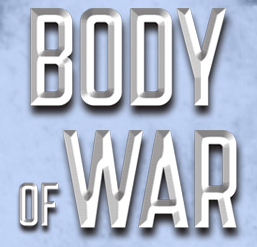Phil Donahue is getting in the last word.
One of the first television personalities to speak out against America's hapless adventure in Iraq, Donahue was also among the war's earliest media casualties. He lost his MSNBC talk show back in 2003 when, according to an internal memo, his bosses had begun worrying that he would turn his show into "a home for the liberal antiwar agenda at the same time that our competitors are waving the flag at every opportunity."
Donahue took his sacking with grace and, for all appearances, vanished from view.
But not for long. Last month, Donahue showed up at the Toronto International Film Festival with a new documentary, Body of War, a searing chronicle of an American soldier gravely wounded in Baghdad, and his tortured physical and emotional struggle to find place of comfort back home.
Whether a testament to the former TV host's popularity, or simply the potency of his subject matter, Donahue's film (which he co-directed with veteran documentarist Ellen Spiro) clearly struck a nerve with the Canadian audience. It received a ten-minute standing ovation after its debut screening and was named a runner-up for the festival's People's Choice Award--out of more than 300 participating films.
Body of War's reception in Toronto was all the more remarkable because of the company the film kept there. Also on the festival bill were The Battle for Haditha, a docudrama about the shocking 2005 civilian massacre in central Iraq, and a trio of ripped-from-the-headlines Hollywood films: Redacted, Brian DePalma's war-vs.-media fever dream; In the Valley of Elah, starring Tommy Lee Jones as the father of a slain U.S. Army specialist; and Meryl Streep's torture drama, Rendition.
With this kind of lineup, who needs to read the morning paper?
For all that is said about the annoying rattle and racket generated by the modern media, we now have an unprecedented ability to measure the pulse of the populace against the daily news crawl. From blogger to pollster to YouTube smart aleck, never before has the public-opinion landscape been so densely populated. And if the Toronto festival is any indication, movie-makers have begun to ride herd on this phenomenon, upstaging Pentagon press secretaries and administration spin-doctors with a new wave of slickly edited, richly scored perspectives of their own.
This has not always been the case. Forty years ago, the homefront opposition to the Vietnam War was just as passionate as the current antiwar chanting, if not moreso; and yet the first major motion pictures about America's ill-fated incursion into Indochina--Coming Home, The Deer Hunter and Apocalypse Now--would not be released until 1978 and 1979, three to four years after the last American chopper evacuated Saigon.
Today, the process has become compressed, as Hollywood's fast-moving popcorn-bucket brigade carries breaking stories from the newsroom to the editing room, seemingly overnight. Welcome to the industry's next new genre: the history-as-it-is-happening movie.
Think about it: While steel has yet to rise on the 9/11 memorial at Ground Zero, Oliver Stone's World Trade Center has already disappeared from pay-per-view.
As any would-be screenwriter can tell you, studios do not green-light with abandon, as executives constantly weigh potential box office receipts against whatever political fallout their movies may provoke. So the mere idea that producers would roll the dice on a film as controversial as, say, No End In Sight--Charles Ferguson's damning 2007 expose of the Sisyphusean U.S. occupation of Iraq--is as good an indication as any that the movie industry has found a lucrative safe haven in the populist antiwar movement.
To be sure, many of these films are arguably as propagandistic as the party lines they seek to discredit. Even as throngs of moviegoers queued up to see Michael Moore's Bush-bruising Fahrenheit 9/11 in 2004, an equal army of detractors was already debunking the movie, line by polemical line. But by the time the dust had settled, the ownership of the war debate was unmistakable: Time magazine proudly plastered the director's face on its cover, just above the headline, "Michael Moore's War." The power-shift was palpable.
Still, the question remains: how much does all this catering to the Saturday night Twizzlers contingent really help shape public opinion? The answer is: plenty. Just four months after Al Gore's documentary, An Inconvenient Truth, won the Academy Award, a marketing research firm in Oregon revealed that sales of the eco-friendly Prius automobile had shot up more than 90 percent over the previous year's figures; and that most buyers were freely admitting that they'd made their purchases based on the environmental "statement" the hybrid car made about them.
"The Prius has become, in a sense, the four-wheel equivalent of those popular rubber 'issue bracelets,'" concluded The New York Times. "It shows the world that its owner cares."
On one hand, it is encouraging to watch filmmakers step up their participation in shaping our national conversation. Theirs is a uniquely expressed point of view, and one that reflects all that is cherished about our nation's inalienable freedoms.
And yet, even in our most powerful movies, a certain sadness lingers at the end of the final reel. I recently asked Phil Donahue if, while working on his film, he ever felt tempted say "I told you so" to his former detractors. Almost immediately, I wished the question had never left my mouth.
"No," Donahue admonished. "Those are awful words. What do we possibly gain from saying them? Would they bring our dead troops back? Nothing good ever comes from saying 'I told you so.'"
This essay originally appeared in USA Today on October 31, 2007.
